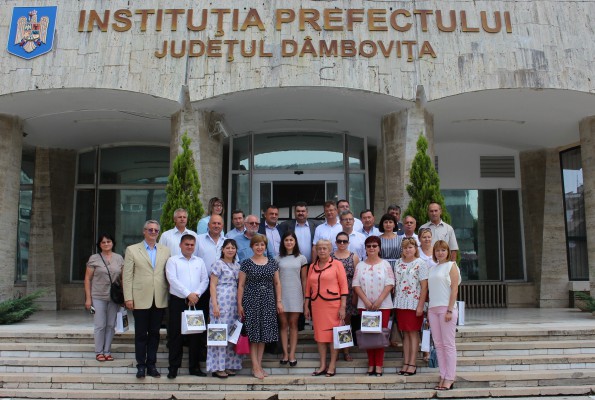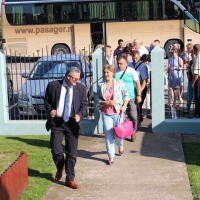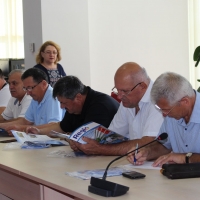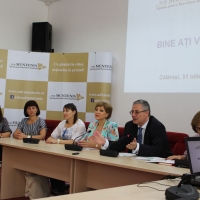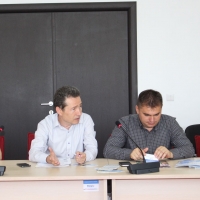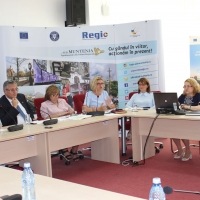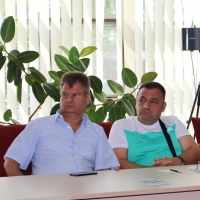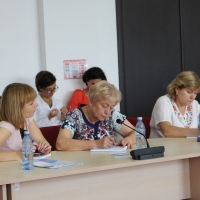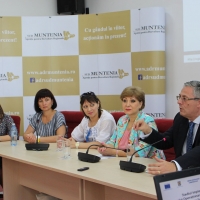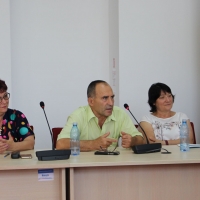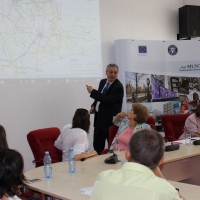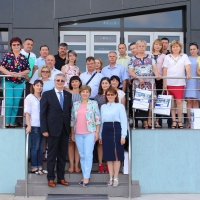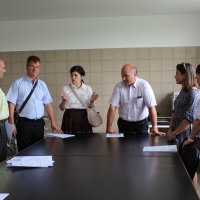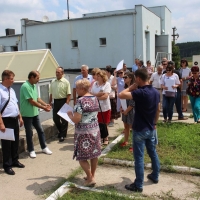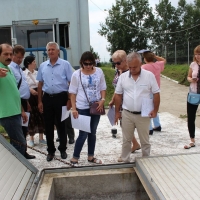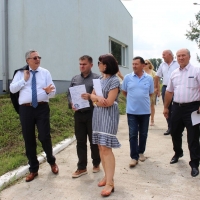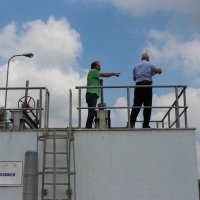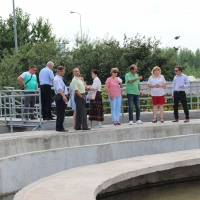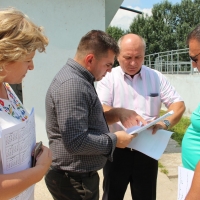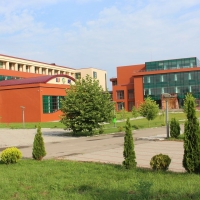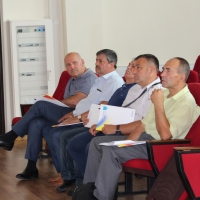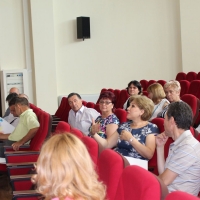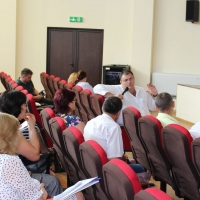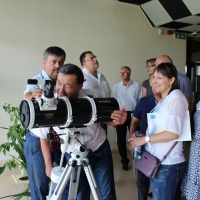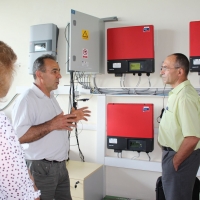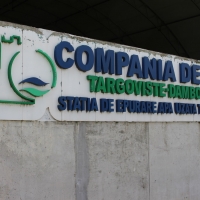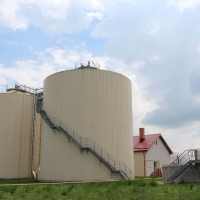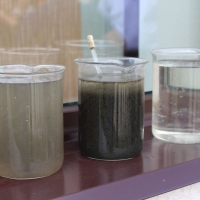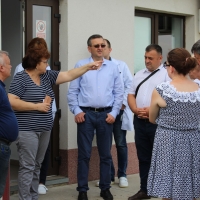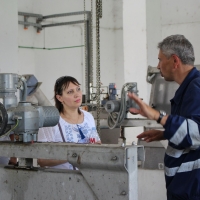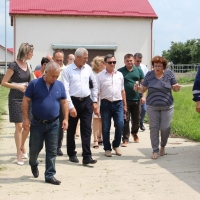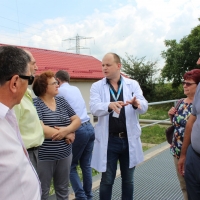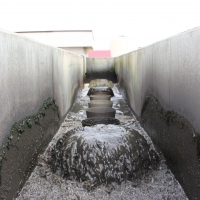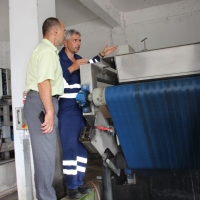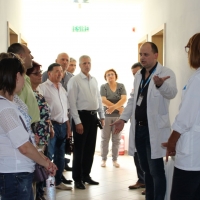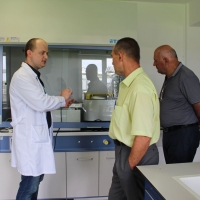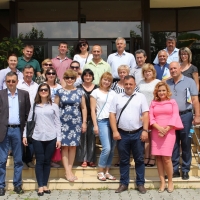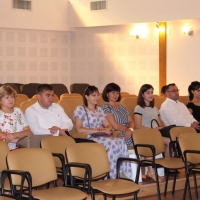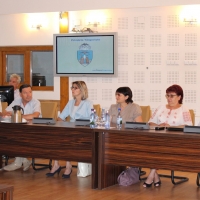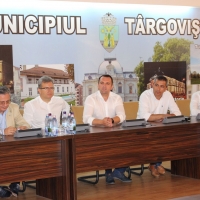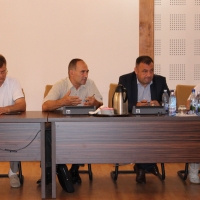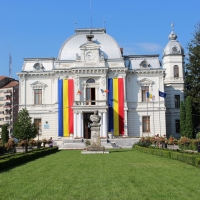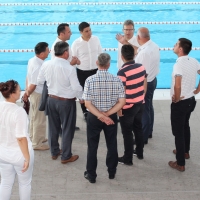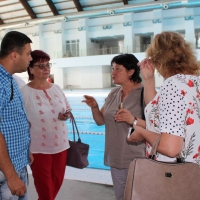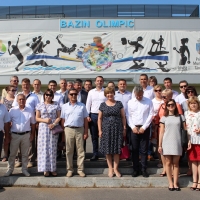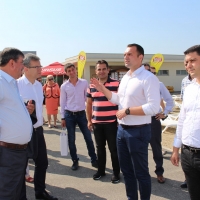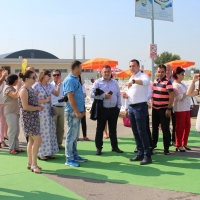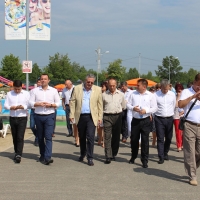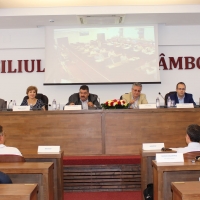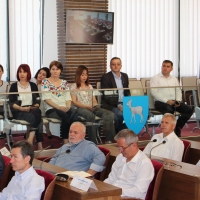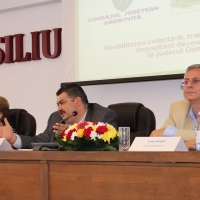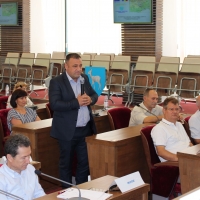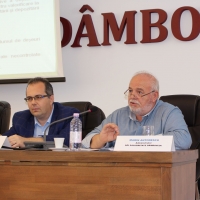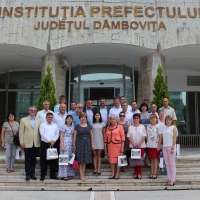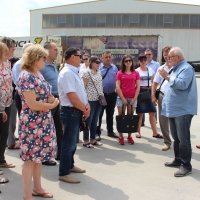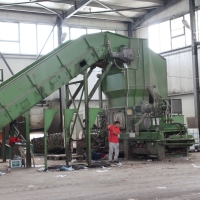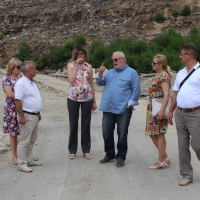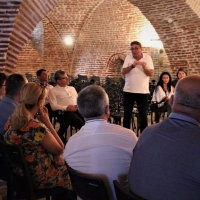Members of Regional Sector Commissions (RSC) in the field of Water Supply and Sanitation (WSS) and Solid Waste Management (SWM) from the South Development Region took part on 30 July – 3 August 2018 in a study visit to South Region from Romania. The delegation composed of members of RSC and specialists from the technical support group visited several facilities from the WSS and SWM fields and other successful projects implemented in the South Region from Romania.
On the first day, the delegation visited South-Muntenia RDA, where it had a meeting with Liviu Musat, the director of the institution and its staff. At the meeting, the main aspects of the programmes and projects with European funding from South Region were presented. South-Muntenia RDA was established in 1999 and is situated in Calarasi Municiplaity, Romania. Until now, the Agency has implemented approx. 1700 projects with a total budget of EUR 1.5 billion. Further, the delegation from the Republic of Moldova visited the Drinking Water Treatment Plant from Calarasi municipality.
Liviu Musat, director of South-Muntenia RDA: ‘Regional development must come with projects of regional impact, not local. The region is the one that matters… We want to turn South Muntenia into a prosperous zone with a strong identity in Romania and Europe, where the population of over 3.2 million has a decent living’.
On the second day, the delegation visited the University Valahia from Targoviste. There, the representatives of the Country Council Dambovita and of South-Muntenia RDA told the participants about the most important projects with European funding ongoing and already implemented in the county. Also, an overall presentation on Sector Operation Programme ‘Environment’ (SOP) for 2007-2013 and Large Infrastructure Operational Programme 2014-2020 (POIM) in the field of modernization and extension of water supply and sewage systems in Dambovita county was made. Further, the delegation visited the Institute for Multi-disciplinary Scientific and Technological Research of the University. Its building was constructed with the support of an EU financed project. In addition, a visit to the wastewater treatment plant from Targoviste was organised.
The last two days of the visit were dedicated to meetings with representatives of Targoviste municipality and of Dambovita County Council. The mayor of Targoviste municipality, Daniel Cristian Stan and chairman of Dambovita County Council, Daniel Comanescu spoke on the results and projects implemented in the municipality and on county level. Further, the delegation from the Republic of Moldova visited one of the projects implemented by the municipality of Targoviste: ‘Tourist Swimming Complex Targoviste’, implemented by accessing European Funds with a total budget of RON 88.3 million.
During the meeting at Dambovita County Council, Marin Antonescu, administrator of ADI Salubritate (Sanitation) Dambovita made a presentation on ‘Rehabilitation of collection, transportation, treatment and disposal of solid waste in Dambovita county’. Marin Antonescu, administrator of ADI Salubritate (Sanitation) Dambovita: ‘In the waste management sector, cooperation and involvement of all actors are most important elements. No one is capable of ensuring an integrated waste management service without association’. The event ended with a visit to the Ecological Dump in Aninoasa (Targoviste) and Ecological Dump in Titu locality.
Maria Culesov, director South RDA: ‘It was a visit as a result of which we found out a lot of things, practices and useful experiences. Now, going back home, we shall implement what our colleagues from Romania and South-Muntenia RDA in particular have shared with us’.
The study visit was organised and supported via the ‘Modernization of Local Public Services in the Republic of Moldova’ project implemented by GIZ in partnership with South RDA (Republic of Moldova) and South-Muntenia RDA (Romania).
******************
The project ‘Modernization of Local Public Services in the Republic of Moldova’ (MLPS) is implemented by the German Development Cooperation through GIZ in partnership with the Ministry of Agriculture, Regional Development and Environment and is financially supported by the German Ministry of Economic Cooperation and Development (BMZ), the European Union, the Romanian Government, the Swedish Government and the Swiss Agency for Development and Cooperation (SDC).


